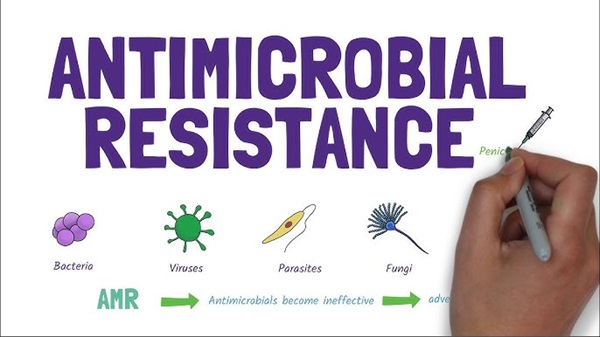
A public health expert, Dr. Gabriel Adakole has called for the urgent adoption of precise and targeted therapies to effectively combat drug-resistant bacteria, as antimicrobial resistance (AMR) continues to pose a growing global health threat.
Adakole made the call on Wednesday during an interview with journalists in Abuja, noting that the situation in Nigeria is especially concerning.
“A recent study analysing bacteria from blood and urinary tract infections in six hospitals across northern Nigeria revealed that about 85 per cent of the isolates were resistant to commonly used antibiotics. Alarmingly, 65 per cent showed resistance even to antibiotics of last resort, underscoring the urgent need for accurate diagnostics and appropriate treatment strategies,” he said.
He highlighted the gravity of the threat, noting that AMR is responsible for approximately 1.27 million deaths annually, with an additional 3.7 million deaths associated with related complications. He stressed that unless antimicrobial medicines are used responsibly, common infections may become untreatable.
“The World Health Organisation (WHO) has updated its bacterial priority pathogens list to guide the development of new treatments. It also emphasises the need for a comprehensive public health approach, including universal access to affordable and quality prevention, diagnostic and treatment measures,” he said.
Adakole added that scientific innovations offer a glimmer of hope.
“For instance, scientists have discovered a new class of antibiotic, zosurabalpin, which has shown promising efficacy against highly drug-resistant strains in preclinical studies. This breakthrough could pave the way for more effective treatments in the near future,” he said.
However, he cautioned that the introduction of new antibiotics without proper diagnostic and surveillance systems might accelerate drug resistance. He stressed the need to pair new treatment options with strong antimicrobial stewardship and accurate diagnostics to confront the challenge effectively.
Science Nigeria reports that AMR occurs when microorganisms such as bacteria, viruses, fungi, and parasites evolve to resist the effects of medications that previously worked against them. This renders standard treatments ineffective, allows infections to persist and increases the risk of transmission.
AMR affects people in several serious ways. Infections that were once easily treatable become more difficult to cure, resulting in prolonged illness and recovery times. Patients may require more intensive care and longer hospital stays. Treating drug-resistant infections often demands more expensive medications and medical procedures, placing financial strain on individuals and health systems.
Common infections such as urinary tract infections or pneumonia can become life-threatening, particularly for vulnerable groups like children, the elderly and those with weakened immune systems. Furthermore, routine procedures such as surgeries, organ transplants and cancer chemotherapy carry greater risks due to the threat of untreatable infections.
AMR is a global concern with no borders. It spreads rapidly within communities and across countries, threatening to reverse decades of progress in modern medicine and posing a serious challenge to global health security.

